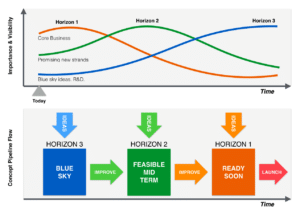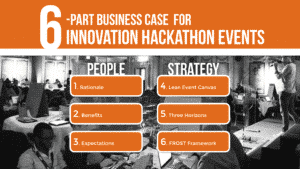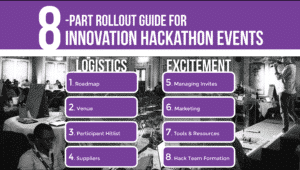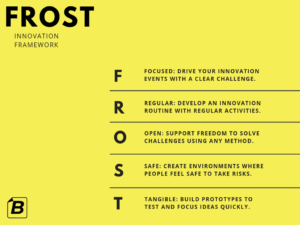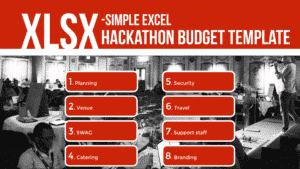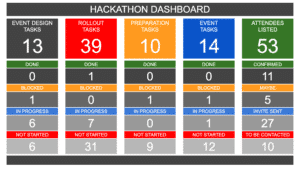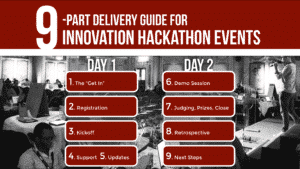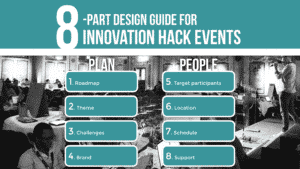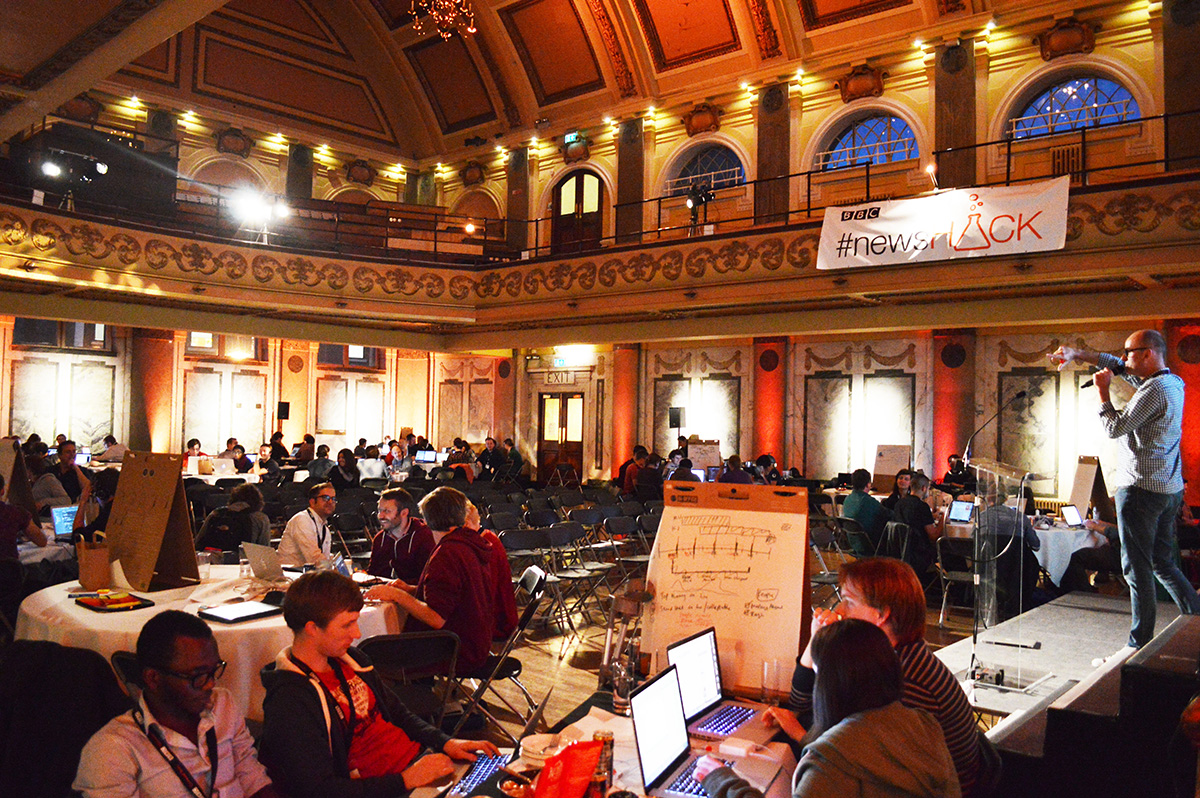
Having defined, iterated and refined a hack event formula for BBC News Labs with BBC R&D between 2012 and 2016 (here’s a post I wrote about the #newsHACK formula), here are 10 tips I recently gave to a colleague who was setting up a not-for-profit hack event. Avoid common hackathon event issues by following these […]
Having defined, iterated and refined a hack event formula for BBC News Labs with BBC R&D between 2012 and 2016 (here’s a post I wrote about the #newsHACK formula), here are 10 tips I recently gave to a colleague who was setting up a not-for-profit hack event.
Avoid common hackathon event issues by following these 10 tips:-
Put your hackers first.
- Don’t bore the participants at the start: This is a really common and devastating issue to avoid – DO NOT make the participants sit through protracted intro-spiel and stakeholder appearences at the start of the event. Keep the kickoff to about 20 mins max. After that, avoid interrupting participants wherever possible.
- Use simple, open challenges: Set out a series of “challenges”, and use “How might we …?” questions to describe them. Have a “Surprise us” challenge too, so that people can bring in their off-the-wall ideas.
- Encourage tangible outputs: Set out that working prototypes¹ will be favoured over pictures of a working system. This makes for a more challenging and rewarding event for the participants, and for more exciting demos at the end.
- Don’t let problems fester: People tend to sit on their problems before they get comfortable, so at some point in the first few hours walk around the room to each team and ask “Ooo this looks interesting, can you tell me about it?”… and then after they’ve chatted for a bit, and if they don’t offer problems, ask “Is there anything we can help with? Anything!” They will then feel at ease and start asking for help when needed.
Make sure your hackers have everything they need.
- Provide power, tools, and raw material: Ensure there are enough easily accessible power sockets, and provide some examples of tools / building blocks to use in your “challenge space”: If it’s code, provide IFTTT, Zapier, clickable prototyping tools, trello, etc. If you are building physical things, provide raw materials.
- Provide strong wifi: Do not rely on standard public wifi. You need fat pipes going up and down. Get a professional to fit and test it, and as a rule of thumb, allow for each participant connecting 2 or 3 devices.
- Provide coffee, tea, soft drinks and snacks: Ensure there is a constant supply of coffee and refreshments for those who want a break from their screens. An area away from the main hack room is a good idea, so people can chat and guffaw without interrupting the focussed hackers.
- Provide expert help: Have one or two people on hand who can help with these examples and datasets – best format for this is a physical desk, with someone there wearing a high viz jacket², and some examples on a laptop.
Help your hackers create the best possible Demo Session.
- Drive a rapid and slick demo session: Keep the demos short – 5 mins max – otherwise people waffle, and audiences switch-off. Create a running order and let everyone know who they are after. Use a buzzer and make some fun of the time element; give 30 second warnings etc. Ensure the equipment is slick, working, and has all the right adaptors. You would not believe the pain that you can inflict with bad demo equipment.
- Provide a Demo template, and talk people through it: Your demo session gives everyone the best chance of their ideas seeing the light of day. Help them! Provide a template for the demos. Example: a) Problem – 30 seconds, 1 slide, b) Solution – 30 seconds, 1 slide, c) Here’s our prototype – 3 mins demo, d) What next? 1 min , 1 slide. Honestly, if you don’t guide people, they will waffle on for hours and lose the plot, and the demos will be a wasted wash-out.
What’s missing? Pizza? Overnight gaming?… yeah that’s just stereotyping.
If you are planning an event, and need to be exhaustive, there are a lot more aspects that you need to plan and worry about. More soon in our FROST Innovation Template range.
Get in touch
If you have requirements for hackathon event planning or tips, please contact us.
We are working innovation experience, findings and templates into our Frost Innovation Framework.
You can see more BBC News Labs innovation events I ran here. I originally setup BBC News Labs in 2012.
Footnotes
¹ Otherwise the participants are not really solving problems, just creating more problems for other people to solve (and these usually rely on magic dust).
² Make them easy to remember! These events are always a sea of new faces, and people are shy, so help them find their help!

